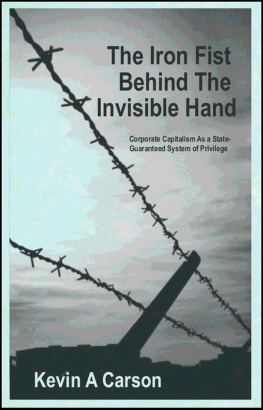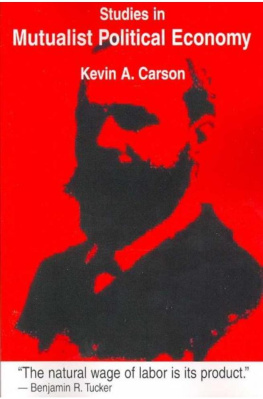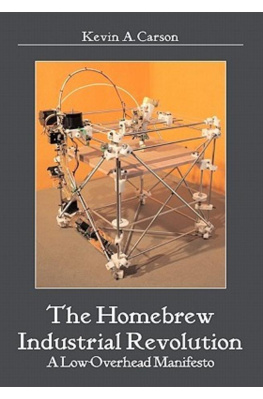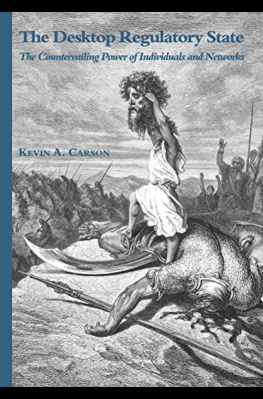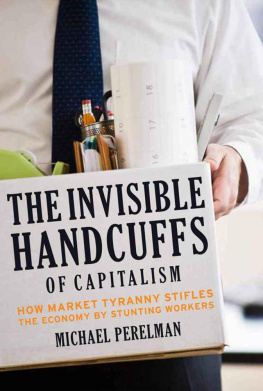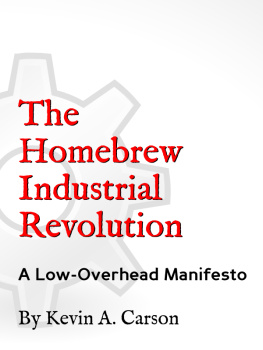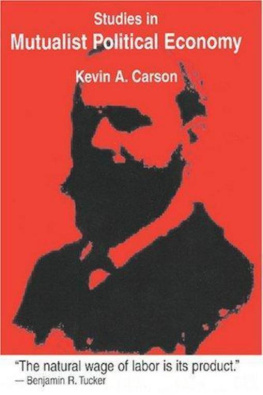Kevin Amos Carson - The Iron Fist Behind the Invisible Hand: Corporate Capitalism as a State-Guarenteed System of Privilege
Here you can read online Kevin Amos Carson - The Iron Fist Behind the Invisible Hand: Corporate Capitalism as a State-Guarenteed System of Privilege full text of the book (entire story) in english for free. Download pdf and epub, get meaning, cover and reviews about this ebook. year: 2001, genre: Politics. Description of the work, (preface) as well as reviews are available. Best literature library LitArk.com created for fans of good reading and offers a wide selection of genres:
Romance novel
Science fiction
Adventure
Detective
Science
History
Home and family
Prose
Art
Politics
Computer
Non-fiction
Religion
Business
Children
Humor
Choose a favorite category and find really read worthwhile books. Enjoy immersion in the world of imagination, feel the emotions of the characters or learn something new for yourself, make an fascinating discovery.
- Book:The Iron Fist Behind the Invisible Hand: Corporate Capitalism as a State-Guarenteed System of Privilege
- Author:
- Genre:
- Year:2001
- Rating:5 / 5
- Favourites:Add to favourites
- Your mark:
- 100
- 1
- 2
- 3
- 4
- 5
The Iron Fist Behind the Invisible Hand: Corporate Capitalism as a State-Guarenteed System of Privilege: summary, description and annotation
We offer to read an annotation, description, summary or preface (depends on what the author of the book "The Iron Fist Behind the Invisible Hand: Corporate Capitalism as a State-Guarenteed System of Privilege" wrote himself). If you haven't found the necessary information about the book — write in the comments, we will try to find it.
Kevin Amos Carson: author's other books
Who wrote The Iron Fist Behind the Invisible Hand: Corporate Capitalism as a State-Guarenteed System of Privilege? Find out the surname, the name of the author of the book and a list of all author's works by series.
The Iron Fist Behind the Invisible Hand: Corporate Capitalism as a State-Guarenteed System of Privilege — read online for free the complete book (whole text) full work
Below is the text of the book, divided by pages. System saving the place of the last page read, allows you to conveniently read the book "The Iron Fist Behind the Invisible Hand: Corporate Capitalism as a State-Guarenteed System of Privilege" online for free, without having to search again every time where you left off. Put a bookmark, and you can go to the page where you finished reading at any time.
Font size:
Interval:
Bookmark:
Kevin Amos Carson

All Your Books Are Belong To Us !
http://c3jemx2ube5v5zpg.onion
Corporate Capitalism as a State-Guarenteed System of Privilege
Copyright 2001 Kevin Amos Carson
Revised in 2002
Purchase a printed copy from Distro of the Libertarian Left here: http://distro.libertarianleft.org/for/contemporary-radicalism/the-iron-fist-behind-the-invisible-hand/?referredby=c4ss.org
***With each purchase, The Center for a Stateless Society will receive a fraction of the money in donation.***
http://c4ss.org/content/19702
Purchase a printed copy of this essay here: http://distro.libertarianleft.org/for/contemporary-radicalism/the-iron-fist-behind-the-invisible-hand/?referredby=c4ss.org
The economist Adam Smith famously used the idea of an "invisible hand" to describe the self-regulating nature of a free market.
In this essay, Kevin Carson, a Mutualist (market anarchist), elegantly explains capitalism's feudal origin, its intimate relationship with the state, and why free markets are impossible under capitalist systems. Specifically, he explains how state intervention is and has always been necessary in order to keep the capitalist upper class in power, and he discusses the various forms this has taken throughout history.
An audio reading by Mike Gogulski is available here: http://www.nostate.com/2228/the-iron-fist-beind-the-invisible-hand-audio-mp3-podcast/
Font size:
Interval:
Bookmark:
Similar books «The Iron Fist Behind the Invisible Hand: Corporate Capitalism as a State-Guarenteed System of Privilege»
Look at similar books to The Iron Fist Behind the Invisible Hand: Corporate Capitalism as a State-Guarenteed System of Privilege. We have selected literature similar in name and meaning in the hope of providing readers with more options to find new, interesting, not yet read works.
Discussion, reviews of the book The Iron Fist Behind the Invisible Hand: Corporate Capitalism as a State-Guarenteed System of Privilege and just readers' own opinions. Leave your comments, write what you think about the work, its meaning or the main characters. Specify what exactly you liked and what you didn't like, and why you think so.

